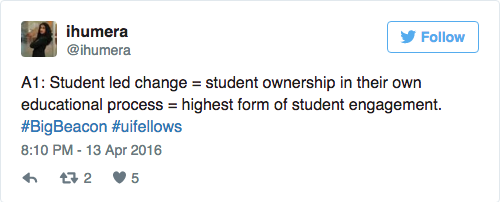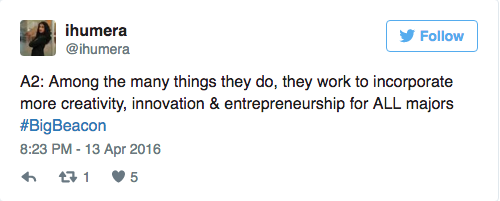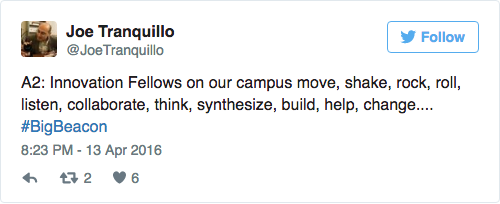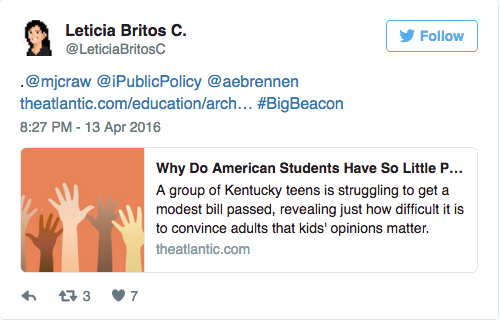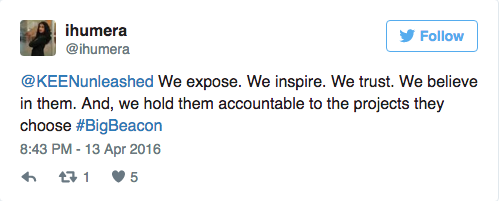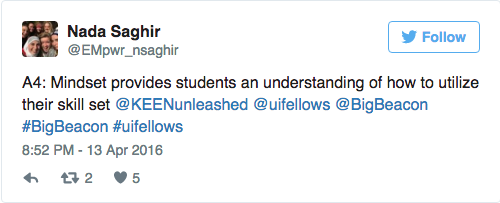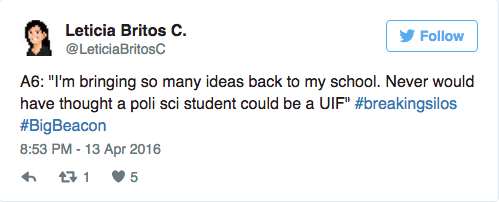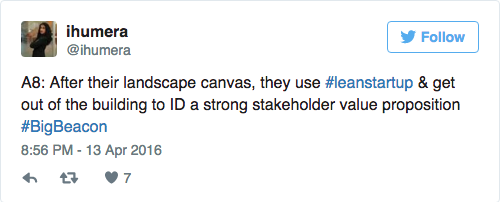The Power of Mindset for Student Change Agents – #BigBeacon Twitter chat
On Wednesday, April 13 at 8 p.m. ET, we had the privilege of engaging in a Big Beacon Twitter Chat hosted by the KEEN Program. Using the hashtag #BigBeacon, leaders from across the nation spent an hour discussing the notion of students as change agents, and how the University Innovation Fellows program develops students’ entrepreneurial mindset to equip them as agents of change in higher education. The conversation included voices from faculty, students, administrators and other stakeholders who drove home the importance of infusing active student participation in the strategic issues facing our college campuses. Participants were given the following questions in advance:
Why is student led change vital to higher education?
Q1: What is a #uifellow?
Q2: How does the UIF program improve or enhance engineering education?
Q3: Why is focusing on mindset just as important as focusing on skill set to equip students for their careers?
Q4: What does UIF do to ensure that students gain necessary attitudes, skills & knowledge to compete in the economy of the future?
Q5: Can you list some highlights of the UIF program and the impact it has had on students?
Q6: What happens once fellows go back to their campuses? Why is that important?
Q7: What is the value of analyzing one’s campus ecosystem?
Q8: Why is it valuable to identify relevant stakeholders and developing empathy for them?
Q9: What does the UIF experience do to change attitudes and dispositions of students?
Among the answers were the following favorites:
